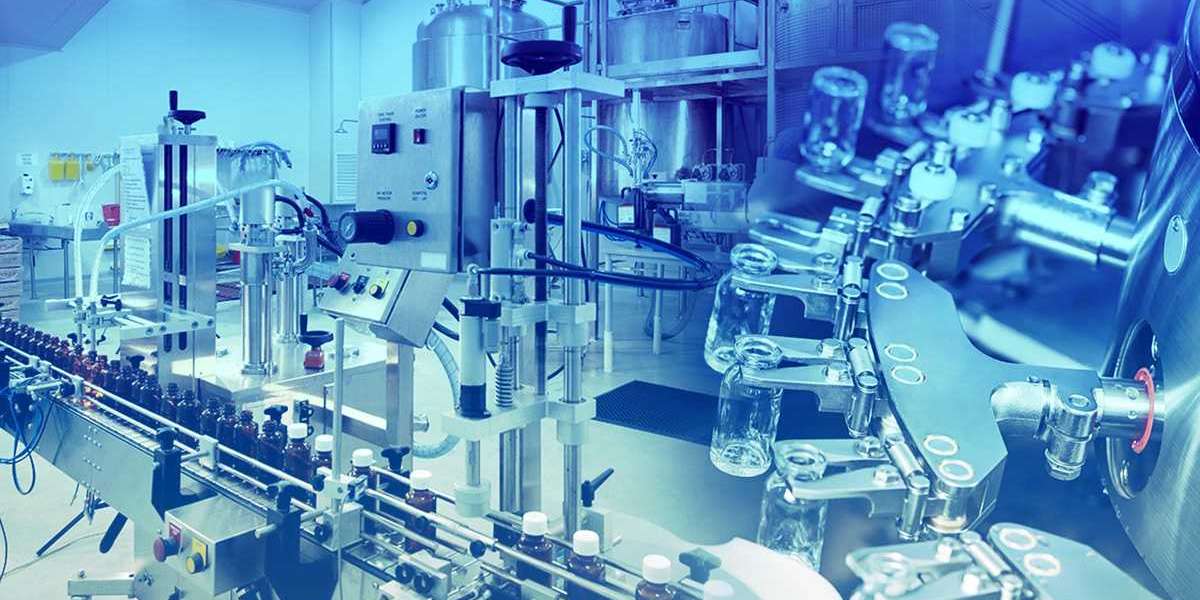Rise of Intelligent Manufacturing
The pharmaceutical industry is witnessing a significant rise in the implementation of digital technologies and automated processes in manufacturing. Major companies are investing heavily in robotics, artificial intelligence, machine learning, internet of things, and other technologies to optimize operations. These technologies are enabling more efficient, flexible, and intelligent production systems. Robotics is automating tasks that were previously done manually to improve production speed, precision, and compliance. AI and machine learning algorithms are helping analyze vast amounts of data from plants to predict equipment failures and downtimes. This is allowing companies to perform predictive maintenance and reduce unplanned shutdowns. Many drug makers have started implementing smart factories technologies that connect machines, materials, and workers through IoT. This is allowing for more flexible production schedules, remote monitoring of operations, and faster resolution of issues. Such advances are helping enhance productivity, lower costs, and drive better quality outcomes.
Automating Drug Discovery Development
Digital tools are also finding increasing use in accelerating drug discovery and development processes. Computational methods, like molecular modeling and simulations, are being deployed at earlier stages to predict pharmacokinetics, toxicity, and interactions to evaluate potential drug candidates faster. AI and machine learning are enabling analysis of vast sets of clinical, research, and real-world data to uncover new insights and applications for existing drugs. This is accelerating clinical trial designs, evidence generation, and regulatory submissions. Some companies are developing “digital twin” computer models of human biology that replicate diseases and test potential therapies in simulation environments. This allows conducting extensive “virtual” experiments without incurring time or cost overheads of real clinical trials. Technologies like AI-assisted lab automation are reducing manual work in research labs and optimizing processes like compound screening. Such advances can potentially slash years and billions of dollars from traditional drug development timelines.
Personalized and Precision Medicines go mainstream
Advances in genomics, healthcare analytics, and digital health are fueling the rise of personalized and precision medicines. Global Pharma 4.0 companies are increasingly developing companion diagnostics and stratified medicine approaches that leverage biomarkers or genetic profiles to target specific patient subsets most likely to benefit. AI and big data tools are helping analyze real-world data from electronic health records, apps, and disease registries to identify phenotypes, biomarkers, and combinations most closely associated with treatment responses or adverse reactions. This is allowing development of more effective targeted therapies. Technologies like pharmacogenomics are helping doctors optimize drug choices and dosing regiments tailored to individual metabolizing profiles. Digital tools are enabling development of combination therapies that leverage different drugs and multi-modality treatments based on a patient's molecular and clinical profile. Such personalized treatment approaches have the potential to dramatically raise efficacy and safety outcomes while also improving a drug's chances of approval and commercial success.
Data-Driven Marketing Commercial Success
Pharma marketers are leveraging vast amounts of patient data, social media insights, and third-party physician data sources to improve targeting, messaging, and sales strategies. Analytics tools are helping evaluate real-world effectiveness and best practices in local patient populations to optimize promotional campaigns. AI assistants are automating tasks like lead generation, prioritization, customer profiling, and personalized outreach. Digital platforms empower remote and virtual detailing of new drugs through multimedia content, apps, and telehealth interactions with HCPs. Social media monitoring analyzes sentiments and conversations around drugs to understand unmet needs and gauge awareness. This provides valuable inputs for developing effective marketing narratives and programs. Advanced analytics tools also assess key demand drivers, prescribe insights, and predict sales uplifts from changes in tactics. Such data-driven strategies promise to raise return on marketing investments, launch drugs faster, and maximize their full commercial potential.
Supply Chain Management Goes Digital
Shortage of key drugs has highlighted the need for robust supply chain management systems. Major pharma companies are digitally transforming supply chains to improve visibility, resilience, and continuity of supply. Advanced analytics evaluates demand patterns, inventory levels across networks, and risks of disruptions to forecast requirements and proactively manage resources. Technologies like blockchain, IoT sensors, and digital twins help achieve end-to-end transparency of physical product movements and digital documentation from manufacturers to patients. This facilitates early alerts, rapid problem-solving, and alternative route planning in case of contingencies. Digital platforms electronically connect all parties across multi-tier global networks to enable tight integration, collaborative planning, and flexibility in schedules. Remote monitoring tools allow proactive quality oversight of outsourced plants worldwide. Such digital levers promise to enhance agility, security, and reliability of complex global pharmaceutical supply networks.
Regulatory Compliance Gets Smarter
Rising regulatory oversight worldwide requires investing significantly in quality and compliance. AI and advanced analytics can help streamline processes around change control management,deviation handling, CAPA management, document controls, and other regulatory functions. Compliance algorithms analyze past inspection reports and audit findings to help achieve higher compliance maturity levels. AI-enabled tools go through vast volumes of paper records quickly to facilitate faster document retrievals during audits. Technologies like remote monitoring sensors continuously track critical metrics in manufacturing plants or clinical trial sites. Blockchain platforms securely record electronic trial data and enable regulators to verify authenticity at any stage. Digital tools help stay abreast of changing guidelines, screen submissions for risks, improve response time to queries, and navigate the complex compliance landscape effectively. Leveraging digital technologies promises to transform relationships between regulators and industries into a more collaborative, risk-based, and streamlined model.
Digital transformation is radically changing the pharmaceutical industry landscape. Emerging technologies are helping drive better health outcomes by facilitating more personalized, safer, and effective treatments. They are playing a key role in optimizing core drug development, manufacturing, and commercialization processes to maximize returns on innovation. An integrated, data-driven approach promises to accelerate industry growth while also enhancing patient experiences worldwide. Pharma companies that successfully navigate this ongoing
Get more insights on Global Pharma 4.0








